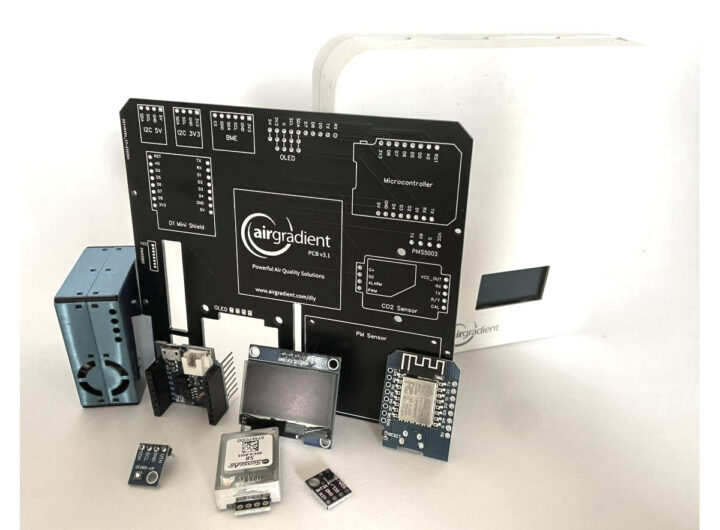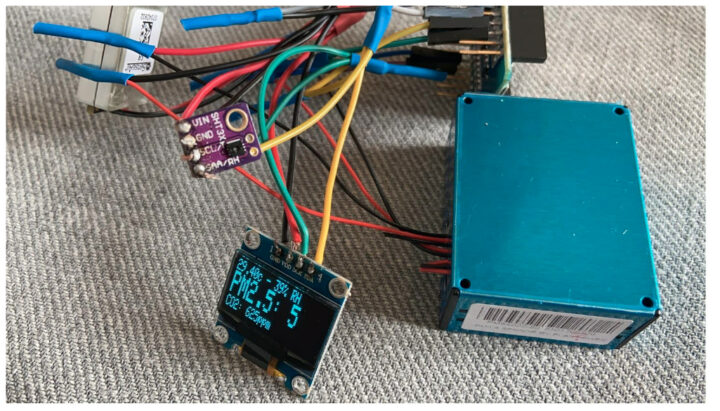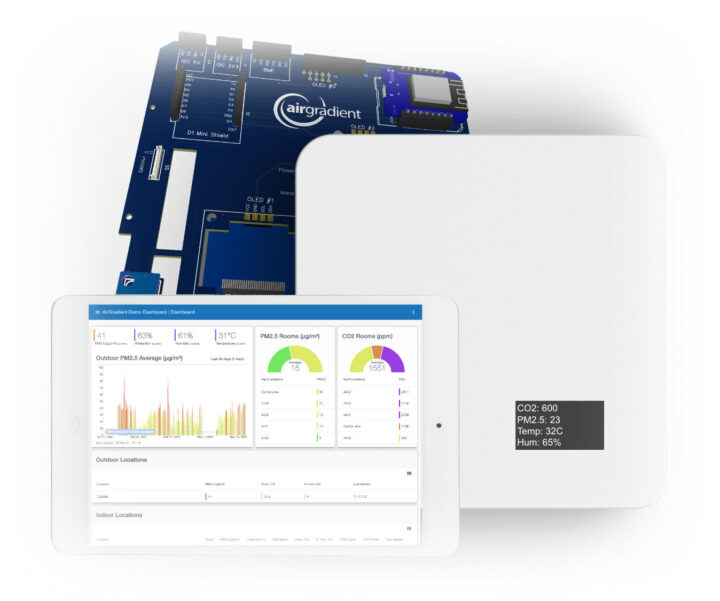Open AirGradient is a DIY air quality monitor based on the Wemos D1 mini ESP8266 WiFi IoT board programmed with Arduino and fitted with a range of sensors including an optional Sensirion SGP41 TVOC sensor through a custom PCB designed with EasyEDA.
Two versions of Open AirGradient are available. The Basic model includes an OLED display, a Plantower PMS5003 PM sensor, a Senseair S8 CO2 sensor, and SHT30 or SHT31 temperature & humidity sensor, while the Pro version adds a larger display, a plastic enclosure, and support for the SGP41 TVOC sensor.

Open AirGradient key components:
- MCU board
- Basic – Wemos D1 Mini Pro
- Pro – Lolin D1 Mini v4 with USB-C port
- Display
- Basic – Wemos OLED shield
- Pro – 1.3-inch OLED display
- Sensors
- Plantower PMS5003 PM sensor
- Senseair S8 CO2 sensor
- SHT30 or SHT31 temperature and humidity sensor module
- Optional Sensirion SGP41 TVOC & NOx sensor (Pro version only)
- Misc (for Pro kit only)
- USB-C connector
- 8-pin JST connector for PMS
- Female pin headers
- Screws – PMS Sensor: M2*4.5 (Torx M6), PCB: M1.7×5 (Philips/Torx M6), Enclosure: M1.7×10 (Philips/Torx M6)
- 90 degrees USB-C cable
- Custom PCB
- 3D printed Enclosure
The custom PCB and enclosure are optional but then your DIY monitor would look like this…
The custom EasyEDA PCB for the Basic version can be found on OSHWLab. The Gerber files as well as the STL files for the 3D enclosures can be downloaded for both the Basic and Pro monitor directly from the company’s website in the instructions for both models. The Arduino library and example sketches for the ESP8266 board are located on GitHub. It’s possible to connect the air quality monitor to solutions like Home Assistant, or to the Airgradient Dashboard instead.
Once you’ve manufactured the custom PCB and printed the 3D enclosure you could purchase the other part off-the-shelf on Aliexpress, Banggood, or other online stores. Alternatively, AirGradients also sells kits directly from their website for $67 to $128 shipped from China, while the R&D office is based in Chiang Mai, Thailand.

Jean-Luc started CNX Software in 2010 as a part-time endeavor, before quitting his job as a software engineering manager, and starting to write daily news, and reviews full time later in 2011.
Support CNX Software! Donate via cryptocurrencies, become a Patron on Patreon, or purchase goods on Amazon or Aliexpress






